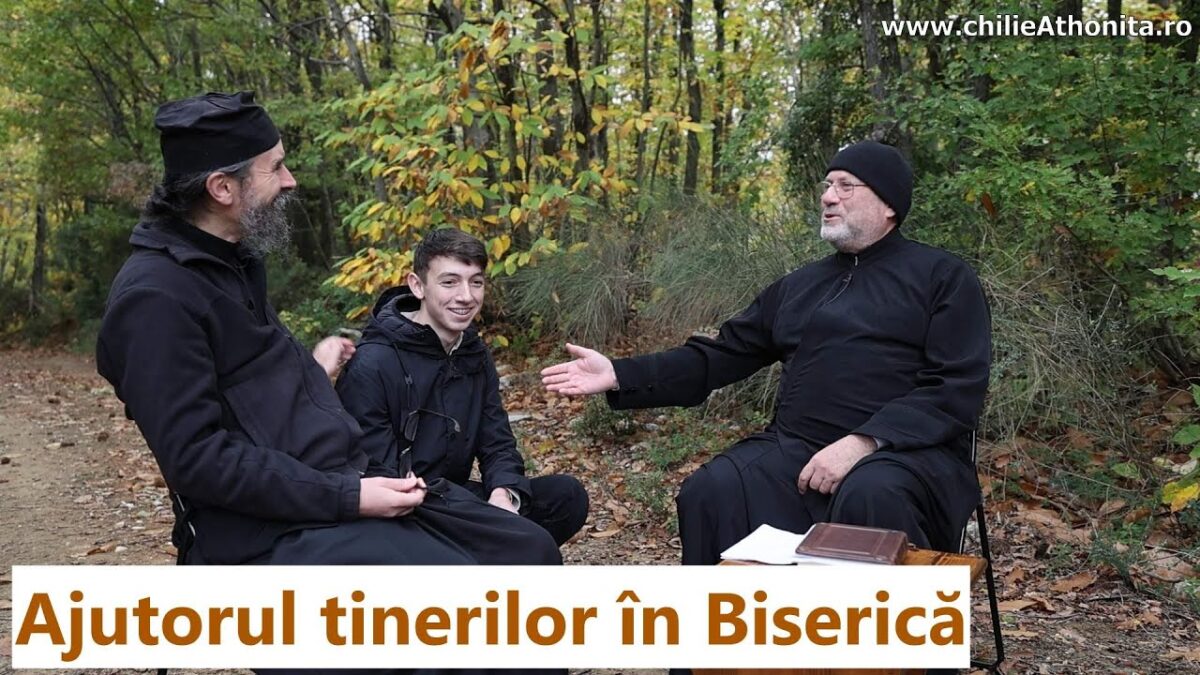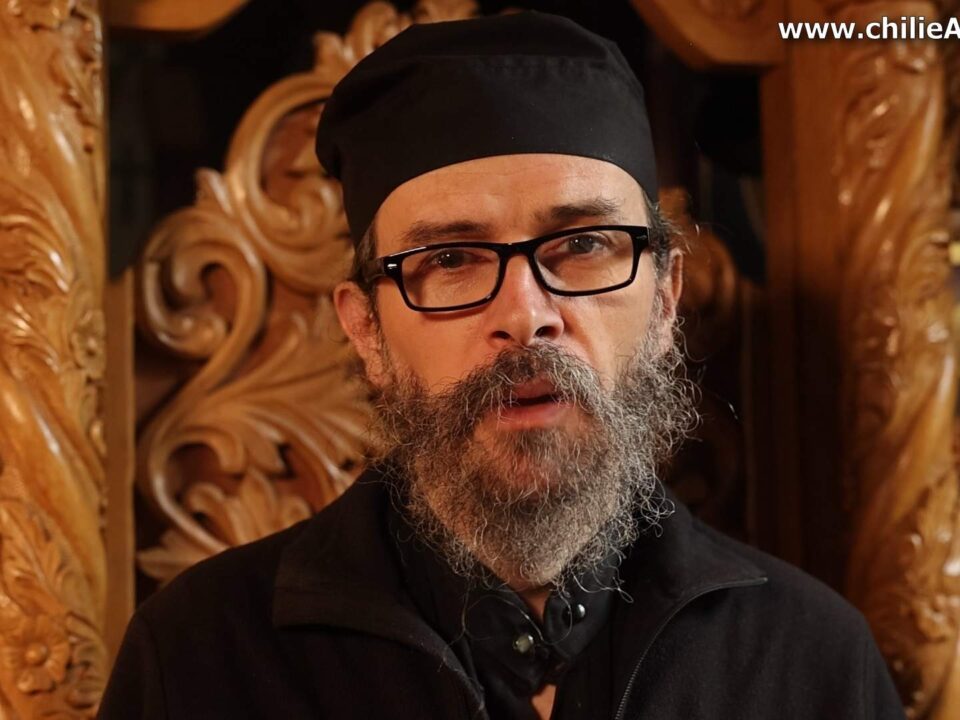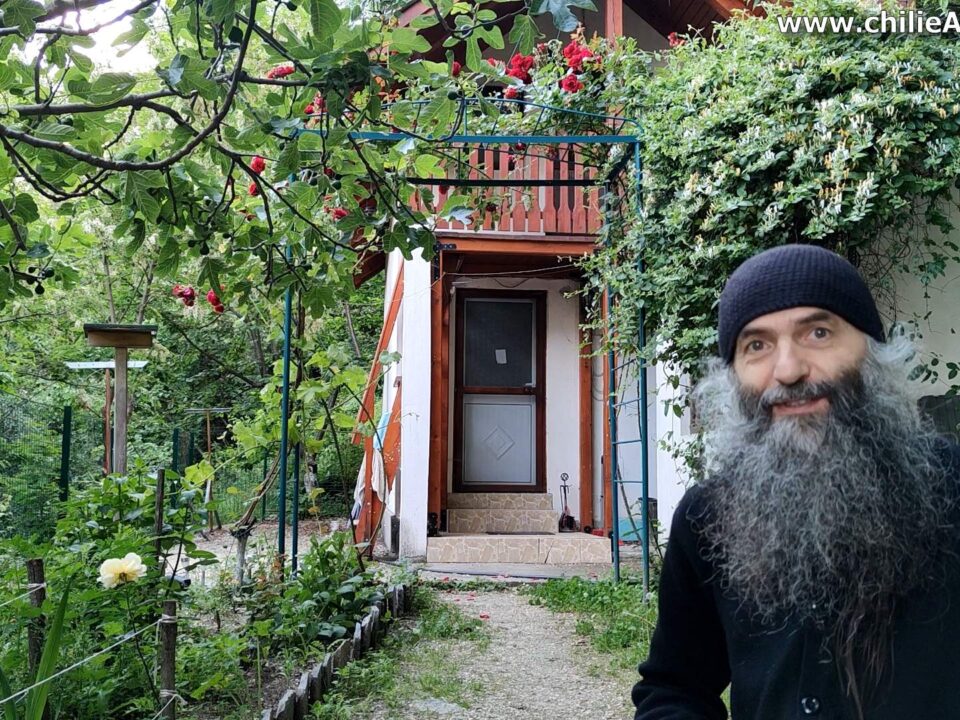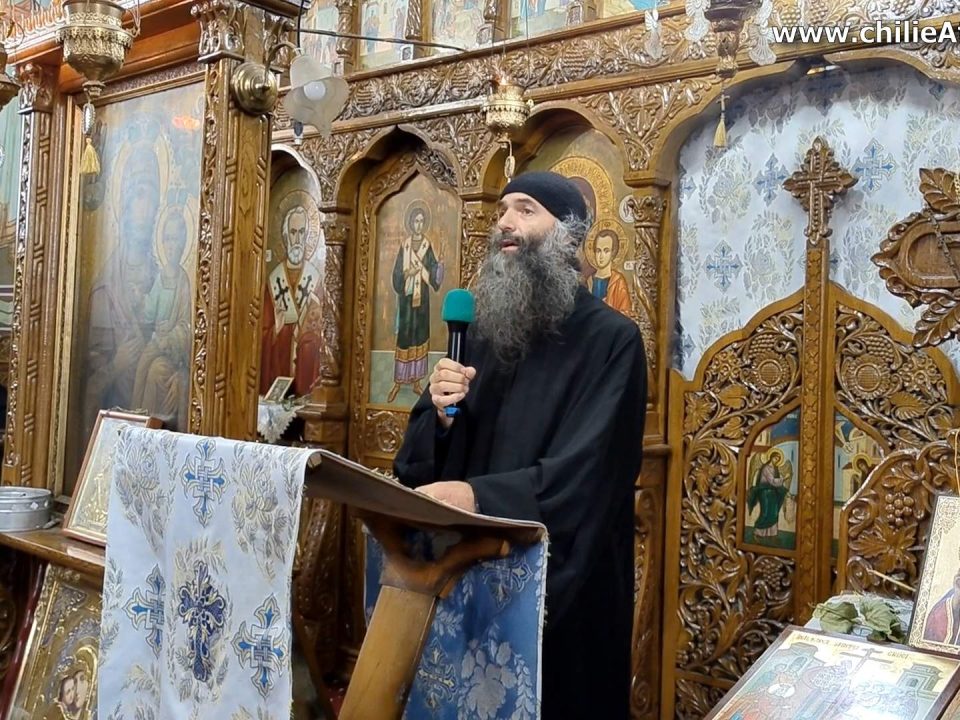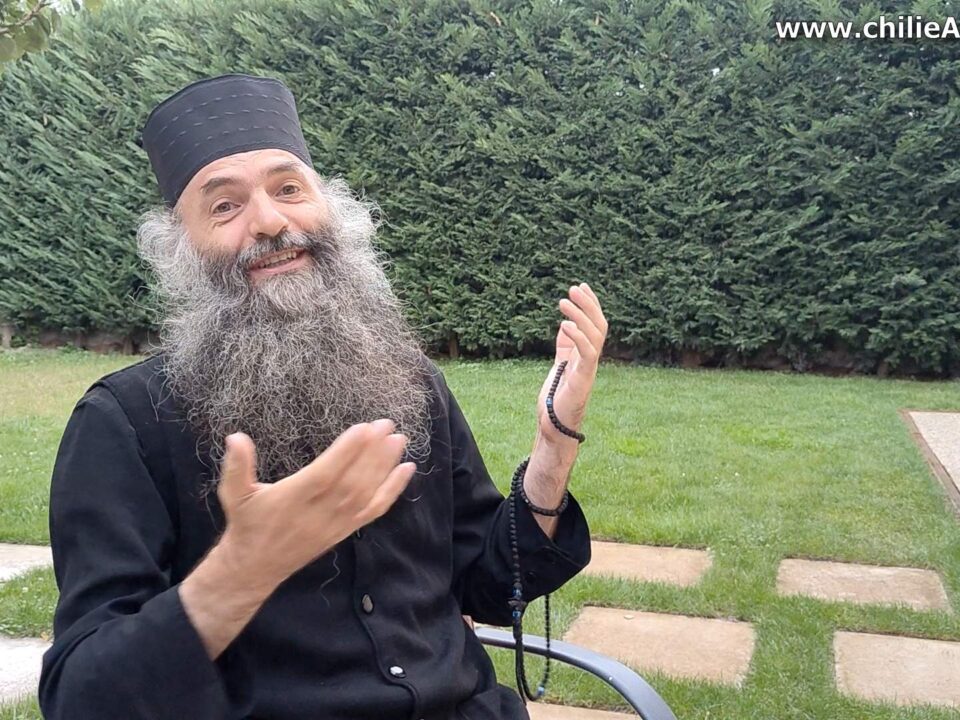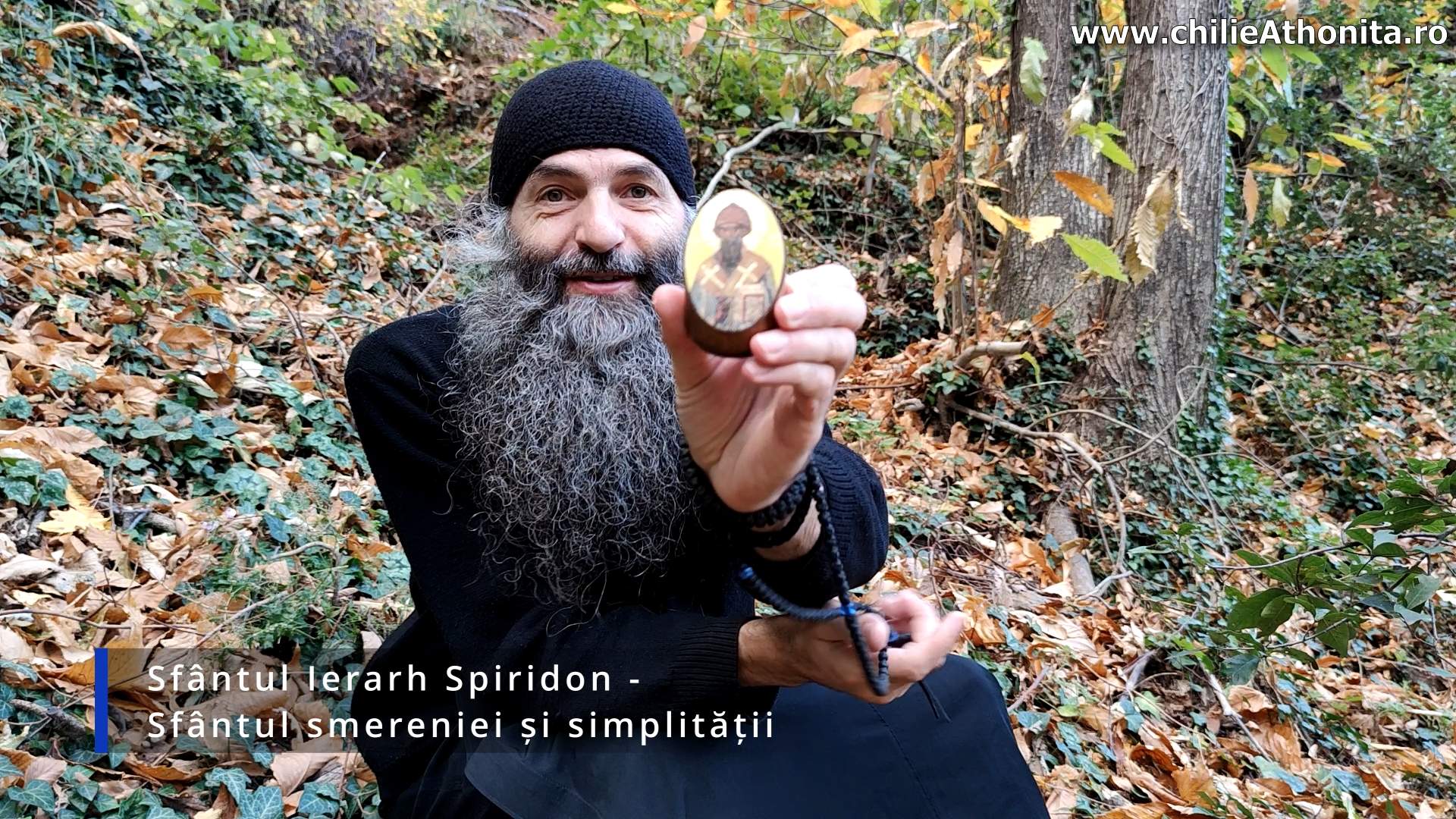
Saint Spyridon – The Saint of Humility – Father Pimen Vlad
8 December 2022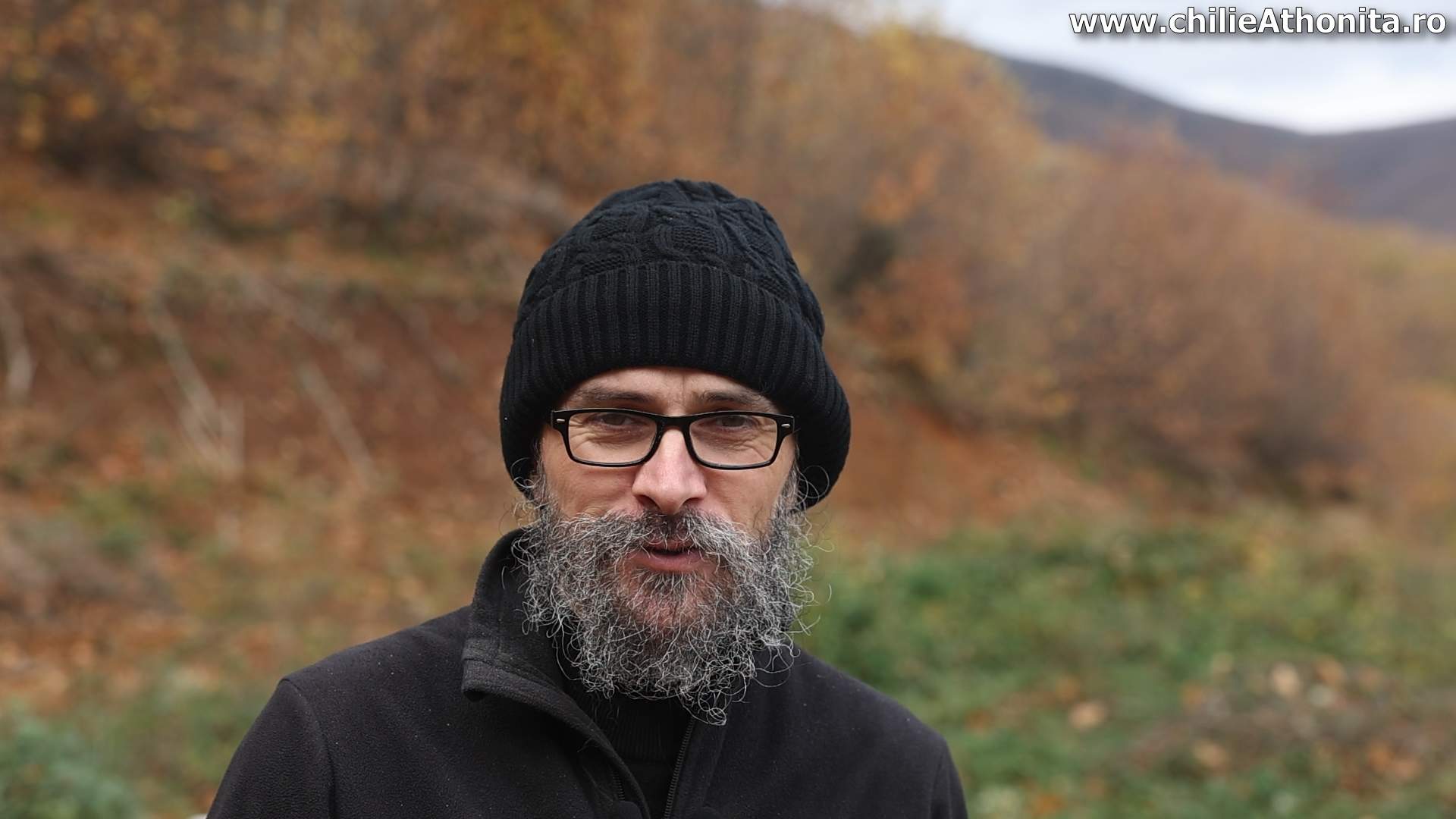
Meaning in Life, Languor – Father Theologos
13 December 2022Almsgiving and helping those in need – especially young people – have been, and remain, among the primary good deeds practiced by each of us individually, as well as by the institutions of the Church.
This work has taken on new dimensions this year with the outbreak of the war in Ukraine, a region from which a fair number of refugees have come to Romania.
Watch a conversation on these topics with Fr. Radu Brînză, coordinator of the “Pro Vita” charitable organization of the Metropolis of Moldavia and Bukovina (https://provitaiasi.ro/).
Enjoy!
Fr. T: Glory to the Father, and to the Son, and to the Holy Spirit, now and forever and unto the ages of ages. Amen. Lord have mercy, Lord have mercy, Lord have mercy, Father, bless!
Fr. RB: Through the prayers of our Holy Fathers, Lord Jesus Christ, our God, have mercy on us! Amen!
Fr. T: We are here with Father Radu Brînză, a very dear acquaintance of ours, who has been to the Holy Mountain before and now I would like us to continue a bit. Firstly, thank you very much for coming, and secondly, I would like, as I said, to continue talking about his activity at Pro Vita, where he is coordinator. And why do I want to do this and why do I want to promote him? Because I love children and young people very much, and father truly strives to help people and help life, yes, which is the greatest gift from God to us. The greatest gift. And especially now, as we are in the Nativity Fast, the fast of Gifts, and Orthodoxy is by excellence the civilization of gifts and the main service – the Divine Liturgy is the Liturgy of the Gifts. And we even have two liturgies: The Liturgy of the Gifts and the Liturgy of the Presanctified Gifts. So today, we will focus much more on gifts. I understand that you have a program, father, what is it called?
Fr. RB: “Gift for Children.”
Fr. T: “Gift for Children.” Can you tell us a little about this topic?
Fr. RB: Yes. It is another Pro Vita project, which we are very happy about because it is also based on the personal experience we’ve had with those we work with and which also comes from our heart, from the desire to help. In any project, we have sought to intervene precisely in the areas where there is need. And I remember when we started the activity for the families with many children, large families, the general program is called “Saint Stelian” and it is a program in which we have over 200 families that have over 7, 8, 9, 10 and over 10 to 15 children at most…
Fr. T: Glory to the Lord!
Fr. RB: …In the three counties of the Archdiocese of Iași: Botoșani, Iași and Neamț. And we wished from the beginning to have direct contact with these families, which we did – we went, it took us almost half a year, but we went to each house in this program, unannounced. That is, we sought to have a meeting that was as natural and genuine as possible and to find the person in their reality. Otherwise, of course, preparation can have a good side, but something of the genuineness of things can be lost. The conclusion or one of the conclusions is that these families, even if they are numerous, most of them are not poor. And this has brought us much joy.
I was in Botoșani County, more precisely in the Darabani area, it was a Tuesday, unannounced, we entered a house and I was delighted – and to this day I have that house in my soul, where everything was clean, tidy, the father freshly shaven, we were joking and saying “Man, I think he even used Hugo Boss.” He was going to plow. And the house was wallpapered with the children’s diplomas. Diplomas they had from competitions, olympiads at the end of the year. And then, from such realities, we found that there is a need to bring a drop of help.
In any project, we have an informal name and an official one. The informal one was “I Want a Nicer House,” as us colleagues were joking. Meaning to make these people’s lives much more beautiful. But, we went with the formula “Gift for Children” because the first title – “I Want a Nicer House” – is somewhat limiting, because it’s not necessarily about houses, but about bringing gifts to these families. And why is that? Because the essence, the basic idea of this project lies in the fact that we want to help these families take a step forward. We cannot ignore that it is hard to have so many children. And I remember the testimony of the father who had 15 children, he told me that with the first five it is terrible, seven, eight, it seems like you see a ray of light, and from eight upwards, I quote that father: “God carries you in His arms.”
Fr. T: Seriously? But it should be…Our reasoning is backwards.
Fr. RB: No, because at some point grace comes, help comes from behind – children raise each other, and the environment. And since we are here, right this summer, being involved in such a family with a project, I really liked what a young woman, a girl from a family with ten children, has said. She was asked this question: what is it like in a family with so many children? And she said that in a family with many children, joy multiplies by ten and you have someone to share your sorrow with.
Fr. T: Yes…
Fr. RB: That is from where it probably happens, and those who have many children have this experience of the fact that the higher the number, the greater the joy and strength. We have this terrible inner strength, we ourselves are still on a ground that isn’t sufficiently fathomable, we still don’t know what we are capable of doing because we are caught up in comfort, laziness, indifference, and so on.
Fr. T: In fact, we’re talking about a war of thought, a war of the devil, a cognitive distortion, in fact. [It’s a] deception when someone tells you that it is easier to raise, let’s say, one child than…
Fr. RB: But I have found one more thing: that these families, as I said mostly not poor (but of course, there are also poor ones; there are also families with only one child that are poor), I’ve found that they are extremely socially marginalized. And ultimately, the “Gift for Children” project is not a project in which we want to invest in construction. If necessary, we do, but we invest in relationship, in dignity. Essentially, it is a gift of love to the hearts that strive, struggle. Basically, through the project “Gift for Children,” we stand alongside those people because they desire it. Please note, we don’t go, we don’t do something copy-paste: eight children – one house, 10 children – one house and one shed. No.
Fr. T: You have a custom approach.
Fr. RB: Absolutely, totally. I’ve mentioned this before. In the “Gift for Children” project, it is not about houses. It may be about a house or it may also be about three chickens. That is, we go based strictly on need. Through the “Gift for Children” project, we are trying to provide an answer to this problem – the solution to the problem – “What can make this man take one step ahead, forward, in his dignity, in his beautiful life?” And we’ve had situations in which, yes, right now we are working on a house, building a house also in Botoșani County where there, effectively, the old one was so small that the need for a large one was felt. And we started from the ground, the foundation, now we are putting on the roof and we’ll soon move on to interior fittings.
But there have been situations where the house was good, but not wide enough for how many people… And then, very well, we added two extra rooms. We had situations where they had enough rooms, but had no bathroom. So we built a bathroom, made the septic tank, we connected to the network, and where it was allowed we made a well with a hydrophore. How can I tell you? You can bring so much joy with a washing machine…
Fr. T: In fact, what motivates you to do all these? What motivates the members of Pro Vita to do all this work?
Fr. RB: We ourselves are Pro Vita. For us, these values we have from our Savior Jesus Christ matter a lot, the most precious gift from God is life and the most beautiful way of living is family. And we ourselves enjoy these, we try to, we are made worthy of these gifts – we cherish life, since we started working we have many children in our families, we have started families…
Fr T: How many children do you have? Forgive me for asking!
Fr RB: Five.
Fr. T: Five. Wishing them a long life!
Fr. RB: And… it’s about having alongside you the person who desires something more.
Fr. T: Yes, yes. You rejoice in their joy.
Fr. RB: Yes, we seek to bring… This is essential, it is fundamental for us – for him who we see desires… because there are of those who don’t desire…
Fr. T: Yes…
Fr. RB: And then we respect this decision, we leave him there, it saddens us sometimes maybe when we see that there is potential, but it is not yet exploited. We do not remain indifferent there either. In fact, we have this branching of projects and we seek the area where let’s say there is a will of the entire family to take a step forward, to add value, including a material one, which creates the conditions for a spiritual value.
Fr. T: Tell us a little about the spiritual plan! How do you help from a spiritual perspective?
Fr. RB: The moment I bring a washing machine into a house, when I make a room, when I buy two piglets that provide material comfort, at that moment I give young people a lot of space for study or prayer. Because there are families in which if it’s not the will of the father or mother to do something, we see it in the children. And then we go to where we find an open door for them to receive the help.
Fr. T: Oh, so the mind is busy with something and in the cases where you helped, it was busy with material worries…
Fr. RB: Evidently.
Fr. T: But it must be said…
Fr. RB: There are children who commute or there are children who… What does a washing machine help with? It’s simple. Because they no longer wash in the basin and we know what it means to wash clothes, to program a machine or to stand there turning, drying them and so on. And in all these details, because primum vivere [first, live] we cannot ignore this foundation….
Fr. T: Yes, it is a hierarchy of needs…
Fr. RB: Yes, yes and so that we can get to the matters of prayer, of study. Primarily we are very interested in the children. And we have, glory to God, many joys regarding the children who manage to attend universities, manage to discover their purpose. I know a very beautiful work within a family where the parish priest – it’s not a Pro Vita case from our project, but it’s a Pro Vita case in a colleague’s parish.
Fr. T: Yes, go ahead!
Fr. RB: The parish priest managed to encourage two very good young football players and now they are in the junior team of the Iași Polytechnic Club, scoring 4 goals per game. The priest paid attention to them. Also in this parish, the priest is as happy as can be that there is the first girl [university] student. Raised around church, based on the vocation of the young, on the chance for the young…
Fr. T: So the Church also has a very pronounced social role, brethren, do not say that the Church does nothing. The Church also does a lot from the social perspective. So this is crucial. We must emphasize this. We must emphasize that the uplifting of the nation is done first of all on a spiritual level, but also on a material level. The one your holiness are in charge of.
Fr. RB: Yes, yes. For us, to return to our project, it is not about the simple material investment. We don’t do it just to do it, to tick it off, to reimburse some materials, to fill out I don’t know what CV. It is not about that. It is about being alongside these families, giving a chance to the children and discovering dignity at the family level. Dignity is vital. We had, I’ll give you a somewhat sadder example, because that’s where we work. In a certain project, it started from the fact that the wife wanted very much while the father, poor dear man, was still under the influence of the boys from the village pub, who were saying – “Man, why are you letting…?!” That is to say, no one admired her, but eventually, glory to God, the man managed to understand that what happened was a good thing for him and especially for his children.
Fr. T: Yes, yes. Glory to God! So you also had trouble, difficulties?
Fr. RB: We always have trouble and difficulties, but we try to look not at how hard it is, but at how beautiful it is when you overcome the hardship.
Fr. T: Yes. How do you see the future?
Fr. RB: I am optimistic. Because now, through the mercy of our good Lord, I am neither very young nor very old. I can look both ways and I believe that based on the experience I have… God has helped me, for example, to live, my life has been divided in two: I was educated and became a priest during the communist era, immediately, on the other hand, I experienced that transition from one system to another and obviously, the priesthood I started no longer resembles the one I am doing now, but in essence it’s the same, it’s just in nuances [that it’s different]. In essence, however, it is the same theme, that the son of God, man, we, the creatures of God’s creation, have in our context. It is enough to go through the pages of the Holy Scripture and through the pages of the History of the Church both B.C. and A.D. and see that every era has had its challenges, its passions, its hardships so that, it may sound strange, but I have a kind of… and I hope to be understood well, I don’t have a satisfaction, but it’s almost like a fulfillment, which includes that I experienced a pandemic, that I caught a war, glory to God, this also sounds like selfishness, but in proximity. Because I grew up with my grandparents’ stories about war. And there was such an aura of legend, of unreal. Reality knocked at the door. I’ve learned a lot during the pandemic.
Fr. T: Can you give us an example? Can you talk about something extraordinary, about…?
Fr. RB: During the pandemic?
Fr. T: Yes, during the pandemic or the war…
Fr. RB: During the pandemic, I’ll tell you what helped me a lot. The fact that during the lockdown period, I understood much better the role of the priest who must have one eye toward the cross in the Holy Altar and one eye toward the man that is behind, and that you have to divide yourself. I, during the lockdown period, have put my whole heart on the Holy Antimension.
Fr. T: Yes. Glory to God!
Fr. RB: The most soothing Lamentation was when I, alone, in front of the Holy Epitaph, with the lit candle lamented, I mourned the Savior. The singer in one pew and the sexton with a candle was weeping in the other pew. We were all weeping because we were alone, but also because there was no longer that rustling which has a charm, a beauty, but it is something we have not experienced, meaning it was an unique experience due to the pandemic.
Regarding the war, yes, Metropolitan Father Theophan has appointed that during this war period that is in our neighborhood, the project department also take over the refugee crisis. And we have three border points in the Archdiocese, at Sculeni, Rădăuți, Prut and Stânca. And we have been active from February to this day…
Fr. T: So you help the refugees and the people coming from there.
Fr. RB: Yes and I was until June, I was there 24/7, non-stop.
Fr. T: Glory to God!
Fr. RB: And I have many, many things… I saw a child who was frightened by the sound of a compote jar popping, due to the noise from the bombings.
Fr. T: He was used to…
Fr. RB: Already at the slightest noise he would get scared, because of the loud noises. I saw young women with a cup of tea next to their bodies, they were crying because only then could they allow themselves to cry, they decompressed, they managed to express their fear. It was the fear of being raped.
I saw women who stopped, elegant women, you could tell, but who were in dressing gowns and they didn’t even turn off the engine, they said, “Just give me a pair of pants because I left with what I was in at home.” And they were so scared that by the time we went to give them pants, they had already left. Because during that time, the physical need for distancing was evident…
Fr. T: Yes… To run away…
Fr. RB: Yes, to run as far away as possible so as not to see, yes. And many, many [others], I won’t go into too many details, but here too, I see it as a gift from God in my life, not in their life, that I was able to see these things from which to learn and for us to learn. And I believe we all need to learn perhaps during wartime, that’s when you pray and it’s better to pray for peace. During the epidemic to realize how blessed you are to be healthy and so on.
Fr. T: That is, we must use anything towards salvation.
Fr. RB: Towards salvation, yes. Therefore, I am optimistic in the sense that if God has allowed us to be in this historic time, with these challenges, I believe we must face them.
Fr. T: Yes, it is God’s will.
Fr. RB: And I’ve learned one thing: God sends us to work, but He always gives us the tools. We just need to see them, take hold of them, and optimistically, with hope in God, make use of them.
Fr. T: May God help us! One last word, what could you say to the people?
Fr. RB: Yes, I don’t really know what to say or because I want to say so much, now I am already like…
Fr. T: Like a full pipe and…
Fr. RB: Just this: to pray for us because we are in a very beautiful mission field, but with many challenges and we also need resources because we cannot build a house only with advice, but we need money, materials…
Fr. T: We will put the account on the screen.
Fr. RB: We need a lot of prayer because, this is my last word: in our Pro Vita ministry, so far, 99% is God’s hand. He has given them to us, God has shown them to us. 1% is our effort too.
Fr. T: Yes, and I believe that the main result, the great joy of the Pro Vita program “Gift for Children” are not the walls, but the people, the children.
Fr. RB: Absolutely. The children are. When we see the happy faces, when we see them enjoying these small things, in the end they are not that difficult to achieve… Eventually you build a house, you have to fix it in 10 years, and after that you repair it once more and then you leave it to someone else. But this joy remains. The relationship.
Fr. T: As you’ve said – the immediate personal experience…
Fr. RB: It came directly from our heart because we have seen their heart and we try to return it to their heart along with other hearts that help us.
Fr. T: And so, to give our audience this immediate and actual experience of what Father Radu is talking about… Do you know how to be obedient, Rafael? Come, come on camera, in the main frame at least.
Man off-camera: He is very tall.
Fr. T: Crouch down. I hope you see him, yes, he’s Rafael. What grade are you in?
Rafael: The twelfth grade.
Fr. T: He is one of the scholarship students of Father Radu Brînză’s Pro Vita program. At which high school?
Rafael: Mihail Sadoveanu, Borca.
Fr. T: Good. What profile?
Rafael: Mathematics – Computer Science.
Fr. T: You told me you like computer science, right? Because that’s what we were discussing. Good, okay, we won’t talk about computer science, but we will talk about how it helped you or what you felt before Pro Vita and after Pro Vita – your experience. Very honestly!
Rafael: Before Pro Vita I don’t know…
Fr. T: After?
Rafael: After, I felt a motivation, a push towards doing what I like, towards self-education and that’s it…
Fr. T: How many siblings are you?
Rafael: We are eight siblings. With mom and dad, a total of ten.
Fr. T: Glory to God! A very numerous family. I understood that your brother was walking on foot – how many kilometers?
Fr. RB: Over 200 daily.
Fr. T: 200 Km daily?!
Fr. RB: Every time he had to come to Iasi for tutoring. He really wanted to become an architect, he is an Architecture student.
Fr. T: He’s the one who should have come now, right? But he’s a freshman and…
Fr. RB: They are two scholarship students from the same family and they are proof that… Rafael and his brother, Emanuel, as well as the other 200, are proof that it is possible and worthwhile.
Fr. T: Yes, indeed it’s worthwhile.
Fr. RB: And this is due to the good hearts and all those who have helped us and continue to help us and we thank you for all the support and all the encouragement you give others to help us. And it has helped us a lot. It’s worth it because you know, as I say to my colleagues: “Look, out of these 200, who will become decent, settled people, we believe, among them could be the next Prime Minister of Romania, the next academician.”
Fr. T: Do you want to?
Rafael: Quite a lot.
Fr. RB: …The next IT specialist…
Fr. T: An IT specialist, yes… not like me.
Fr. RB: …The Minister of Information Technology and so on. I mean, you never know. We will not make an inventory, but if we ever hear we will rejoice in the fact that somewhere in the course of their becoming we have managed to make a contribution too.
Fr. T: May the good God help! Thank you very much! Through the prayers of our Holy Fathers, Lord Jesus Christ, Son of God, have mercy on us! Amen.
Thank you!
Online commemoration lists and donations
May the Lord help us!
Online Commemoration Lists and Donations
May the Lord help us!
If you have a bank card and wish to send commemoration lists and donations online using your card, and/or to support our philanthropic activity, including this site, please fill out the form below to make a small donation. The form is secure – we use Stripe for payment processing – a world leader in this field. We do not collect your personal data.
If you do not have a card, or do not wish to use it, visit the webpage for Online Donations and Commemoration Lists.
We will pray for your loved ones! (Please do not include inessential details like wishes, degree of kinship, introductions etc. JUST the name!)
Especially for recurring commemoration lists, we ask that you please keep them to under 20 names long. If you include a member of the family, we add “and for their families.”


